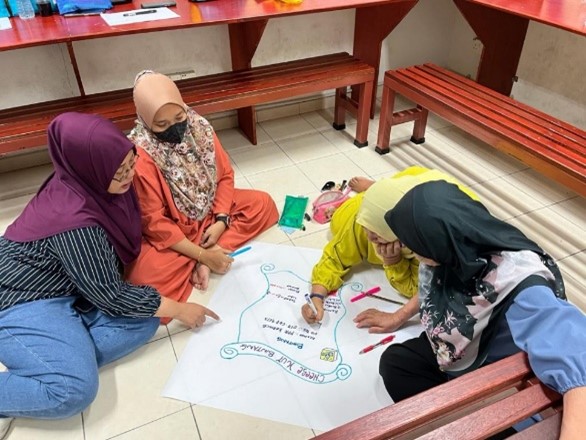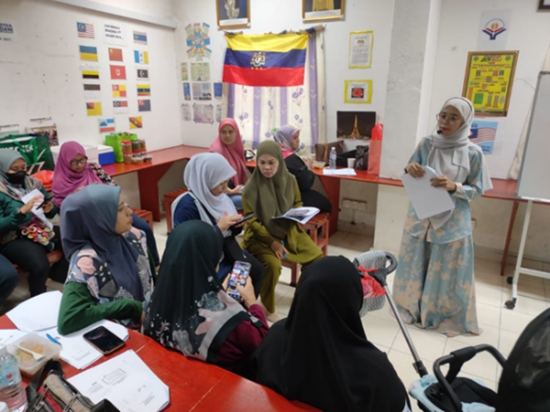
IN Malaysia, household income is categorised into three groups: B40, M40, and T20. The B40 group, representing the bottom 40% of household incomes, earns less than RM 4,850 monthly.
Those in this category are eligible for various forms of government assistance, including the Rahmah Cash Contribution (STR), MADANI Medical Scheme, Jaringan Prihatin B40, and the People’s Housing Programme.
We believe that increasing the participation of B40 women in both formal and informal jobs is critical to driving economic growth in Malaysia.
By empowering these women, we can help boost household incomes and ensure a more equitable distribution of wealth across the country.
To that end, numerous programmes have been implemented to elevate women’s economic status, with a strong emphasis on entrepreneurship. Enhancing women’s involvement in entrepreneurship is also a key objective under Malaysia’s National Entrepreneurship Policy 2030.
From our experience, most B40 women entrepreneurs run small businesses in the informal economy, engaging in activities like tailoring, street vending, home-based ventures, and freelancing.
The informal sector, by its nature, operates on a small scale and often without official business licenses or permits. As a result, it remains under-supported by the government.
Throughout our research, we’ve identified several common challenges faced by B40 women entrepreneurs: limited knowledge of product or service marketing, pricing difficulties, poor management skills, social issues like discrimination and prejudice, and personal problems such as work-related stress and lack of family support.
Additionally, many of these women lack access to essential business training and financial skills, and they often find it hard to secure loans.
There is still a lingering bias that assumes women are incapable of managing their own businesses. These systemic barriers must be addressed.
To truly empower B40 women entrepreneurs, we believe entrepreneurship training is vital. Our goal with such training is to instil new knowledge, skills, and experiences that lead to sustainable changes in behaviour and a greater capacity for business success.

Working with the Ungku Aziz Centre for Development Studies (UAC) at Universiti Malaya, alongside fellow researchers from Universiti Teknologi MARA (UiTM), we established Dapur Mawar, an initiative aimed at increasing entrepreneurial skills and knowledge for women in the B40 group.
Through Dapur Mawar, we provided training to 23 B40 women entrepreneurs from PPR Kerinchi and Desa Rejang in Kuala Lumpur.
This programme featured five sessions, led by experts from diverse backgrounds, designed to help these women learn the necessary skills and systems to start and operate their own small businesses.
The programme connects them to economic opportunities, building a stronger support system for women who want to generate income and improve their families’ lives.
We believe that adaptability, perseverance, and hard work are key to success in small business, especially for women.
Strengthening the economic foundation of the family through women’s entrepreneurship not only contributes to the nation’s economic development but also reinforces the family unit.
As household managers, women play a pivotal role in ensuring their families’ well-being. Their contributions to the economy, both at the family and national levels, should not be underestimated.
Finally, we recognise that fostering collaboration between entrepreneurs and researchers is essential to driving innovation and creating high-value products and services.
Such collaboration will enhance competitiveness, while government and entrepreneurship bodies must work to create a supportive, comprehensive ecosystem that considers the diverse characteristics of entrepreneurs, cooperatives, social enterprises, and SMEs.
Only then can we ensure that entrepreneurship flourishes in Malaysia.
The authors are from the Ungku Aziz Centre for Development Studies (UAC), Universiti Malaya.
The views expressed are solely of the author and do not necessarily reflect those of MMKtT.
- Focus Malaysia.



No comments:
Post a Comment
Note: Only a member of this blog may post a comment.